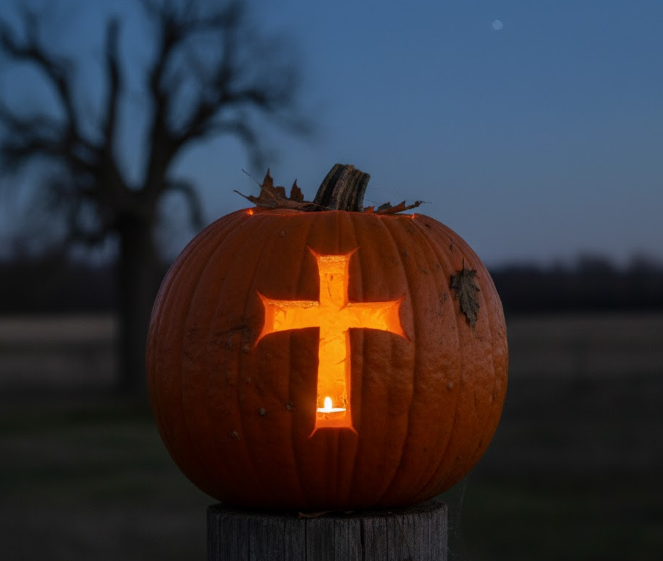
Biblical Perspectives on Halloween: What Christians Should Know
Every October, many families face the same question: Should Christians celebrate Halloween? While the Bible does not mention Halloween directly, Scripture offers timeless guidance on how believers can approach cultural traditions with discernment, wisdom, and faith.
What the Bible Says About the Occult and Spiritual Darkness
Halloween’s imagery often includes ghosts, witches, and other symbols connected to the supernatural. Scripture is clear that God’s people are to avoid any practice that seeks power or knowledge apart from Him.
“Let no one be found among you who… practices divination or sorcery, interprets omens, engages in witchcraft, or casts spells.” — Deuteronomy 18:10–12 (NIV)
This passage reminds believers that our source of guidance and protection comes from the Lord alone (Isaiah 8:19). Even when participation seems harmless—such as dressing up in costumes or telling ghost stories—it is wise to examine whether these actions glorify God or blur the line between light and darkness.
Walking in Light, Not Darkness
The Apostle Paul exhorts the church to “have nothing to do with the fruitless deeds of darkness, but rather expose them” (Ephesians 5:11). Halloween’s themes can easily drift toward fear, death, and mischief, but believers are called to reflect Christ’s light in every setting.
“You are all children of the light and children of the day. We do not belong to the night or to the darkness.” — 1 Thessalonians 5:5
Some families choose to transform the day into an opportunity for witness—hosting light-themed festivals, prayer gatherings, or simple acts of kindness in their neighborhoods. Others decide to abstain completely, believing that avoidance best honors God. Both paths can express faithfulness when guided by prayer and conviction.
Avoiding Idolatry and False Worship
Halloween’s historical roots include ancient festivals that honored spirits and the dead. Paul warned the Corinthians that participation in such practices could conflict with devotion to Christ:
“The sacrifices of pagans are offered to demons, not to God, and I do not want you to be participants with demons.” — 1 Corinthians 10:20
Modern celebrations may no longer carry the same intent, but the principle remains—Christians should be cautious about anything that normalizes or glorifies evil. As Philippians 4:8 reminds us, believers are to focus on “whatever is true, noble, right, pure, lovely, admirable… excellent or praiseworthy.”
Scholarly and Community Perspectives
Christian perspectives on Halloween vary widely:
- Cultural Engagement: Some theologians and pastors view Halloween as a cultural rather than spiritual event—an opportunity for outreach, creativity, and community connection. When separated from occult themes, the holiday can be seen as neutral, even redeemable.
- Spiritual Separation: Others emphasize the biblical call to be set apart (Romans 12:2), arguing that even symbolic participation in dark imagery conflicts with Christian witness.
- Balanced Discernment: Many leaders encourage discernment rather than division—urging families to evaluate motives, context, and conscience before deciding how to engage.
Finding a Faithful Balance
There is no single biblical command declaring Halloween good or evil. Instead, Scripture equips believers with principles to navigate it faithfully:
- Pray for wisdom (James 1:5).
- Test everything and hold fast to what is good (1 Thessalonians 5:21–22).
- Reflect God’s love and light—whether by abstaining or participating differently.
As followers of Christ, our goal is not to fear the world but to transform it through grace and truth.
Conclusion: Redeeming the Day for God’s Glory
Halloween offers Christians a moment to reflect on how faith shapes daily life in a culture that often celebrates darkness. Whether you hand out candy with Scripture verses, host a church “harvest night,” or simply spend the evening in prayer and fellowship, let your actions point others to the One who conquered fear and death.
“The light shines in the darkness, and the darkness has not overcome it.” — John 1:5